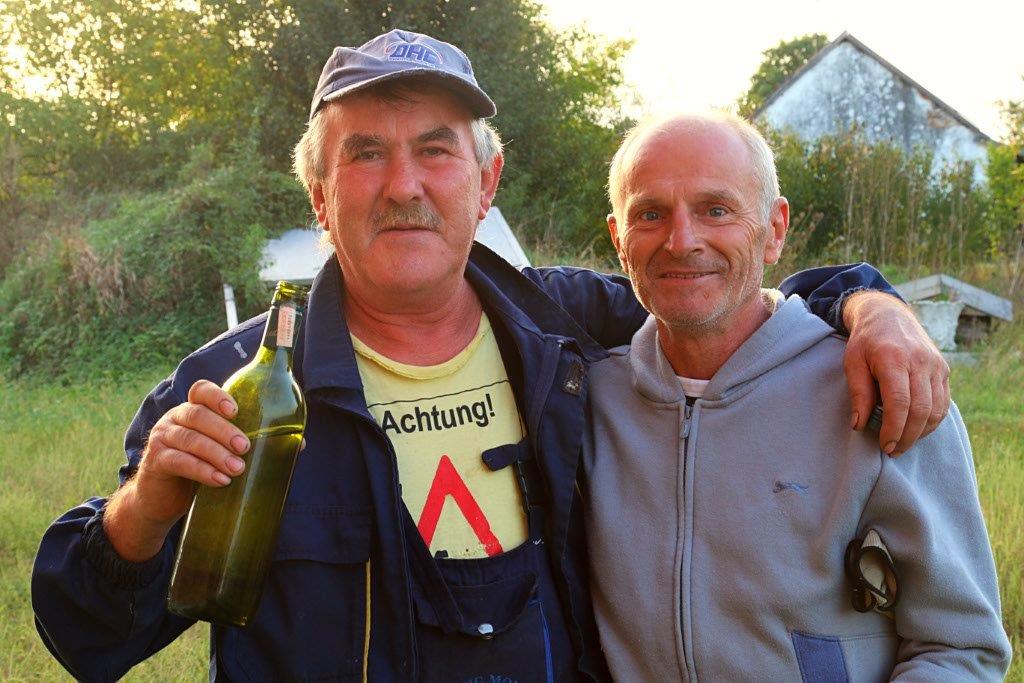
28 Dec 9: A tale of two countries (Bosnia)
Kostajnica, Bosnia to Podgorica, Montenegro (20 – 28 Sep)
Total miles cycled: 1,118 (1,800km)
Thigh status: Mini-Zeppalin
The best thing about camping is the joy you feel when you don’t have to do it. My first night in Bosnia is spent in a cheap motel, under a firm roof and some powerful leopard skin linen, and I awake fully refreshed. By 9am, I am en route to Prijedor, 65km away along the river.
I feel the country become gradually poorer as I ride. Houses often comprise just half-finished jumbles of brick, their windows a cluster of black, sunken eye-sockets. Farmers in flat caps pass me on horse and cart, while decrepit Ford Fiestas hoot greetings as they thunder by and veer cheerily into oncoming traffic.
It’s lunchtime by the time I pull up in Prijedor, the third largest municipality in the Republika Srpska (Serb Republic). This covers the northern and eastern regions of Bosnia and is predominantly Serb Orthodox, I learn, with a minority of Bosniak Muslims and Croat Catholics. The rest of the country falls under the Federation of Bosnia and Herzegovina, comprising a majority of Bosniaks with a minority of Croats and Serbs.
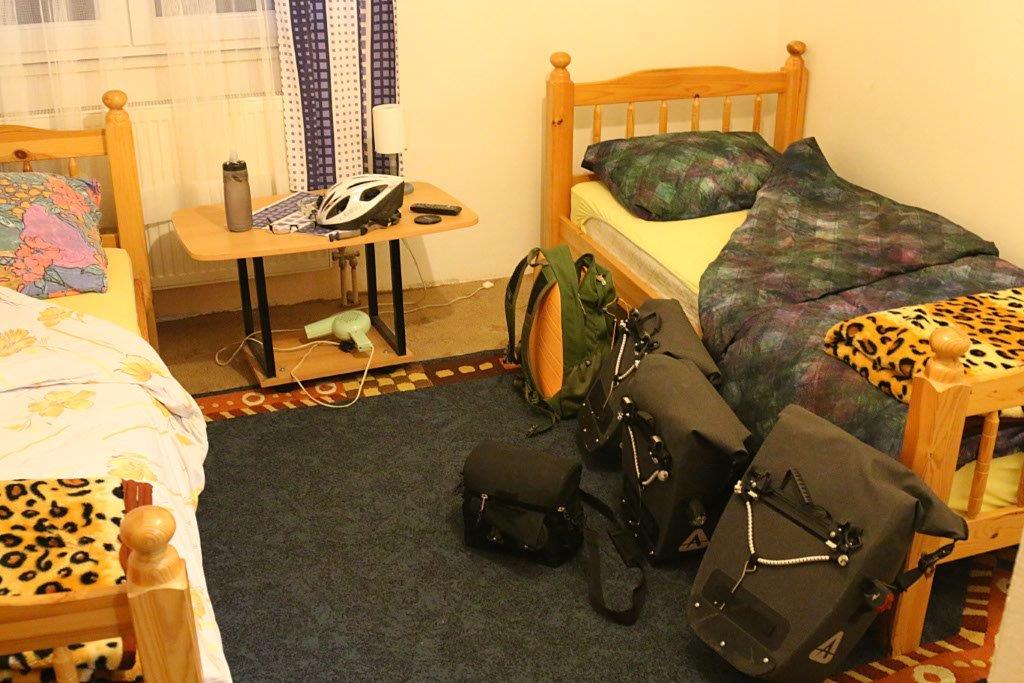
I celebrate my first night in Bosnia with a wanton night under leopard skin.
Prijedor seems fairly nondescript as I nose briefly through the centre. However, the city reflects some of the country’s most troubling hangovers from the past. Around 5,200 Bosniaks and Croats were killed or went missing here in a mass genocide perpetrated by the Bosnian Serb army in 1992, while thousands more suffered in hellish concentration camps.
Today the city is sunny and peaceful, but I’m told that ethnic clashes have been on the rise since the 20th anniversary of the Srebrenica massacre in July. I don’t hang around long to investigate, however, as I need to find a camping spot and it’s already growing dark. I berate myself for again leaving my search so late. It would take an adolescent chimp less time to learn from its mistakes than me, I muse as I frantically scan the roadside in the dimming light. And it could probably cycle faster too.
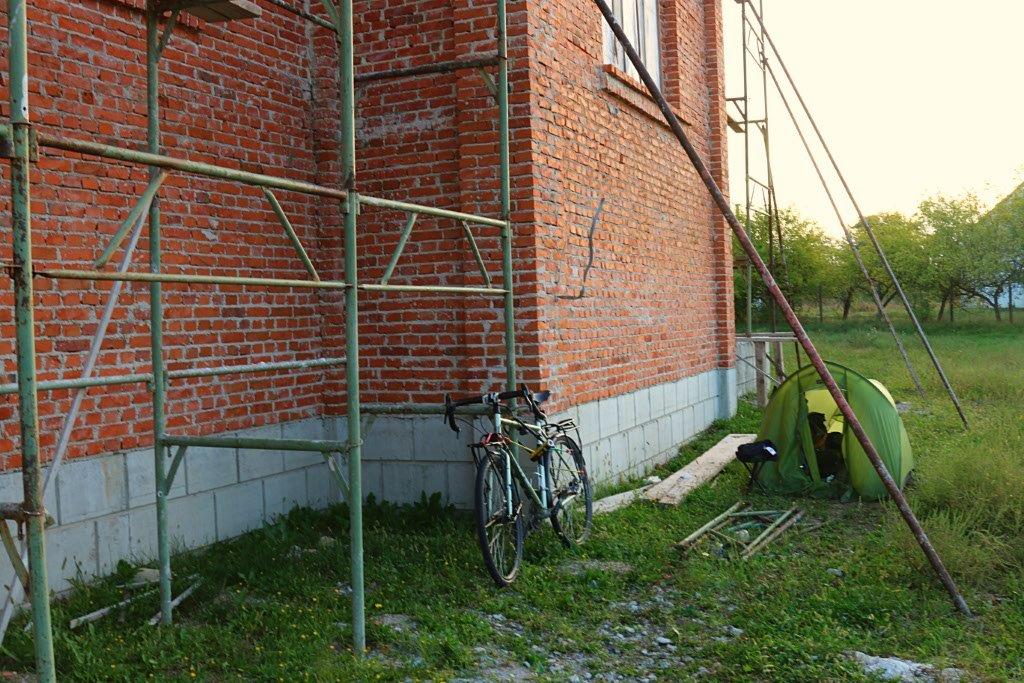
For my second night, I find a cosy spot to camp behind a half-built church. A little spooky as night descends, and I turn deeply religious for the best part of eight hours.
Eventually I spot what seems to be a derelict church set back from the road, and I wheel in for a look. Despite a prowling rabid mutt clearly on its third line of coke, it’s not bad at all. So just half an hour later, I’m snuggled deep inside my sleeping bag supping a nightcap of Kutjevo Grasevina 2013, a highly drinkable Croatian white (and then another — an abandoned churchyard at night is no place for abstinence).
For the second time in three days, I awake what seems like minutes later to the deafening roar of a tractor. It’s 6.15am and I stumble bleary-eyed into the daylight to find a couple of builders staring at my tent in bewilderment. I brace myself for an unpleasant exchange. What happens to trespassers in Bosnia, I wonder? Should I make a mad dash for it across the fields? Before I have time to collect myself, however, they have administered their punishment, harsher and more potent than I could have possibly imagined: a large mug of home-brewed rakija that dissolves the oesophagus and pickles the innards like a shot of sulphuric acid.

Trespassing is clearly taken seriously in Bosnia. They wake you at the crack of dawn and force you to drink homebrewed rakija.
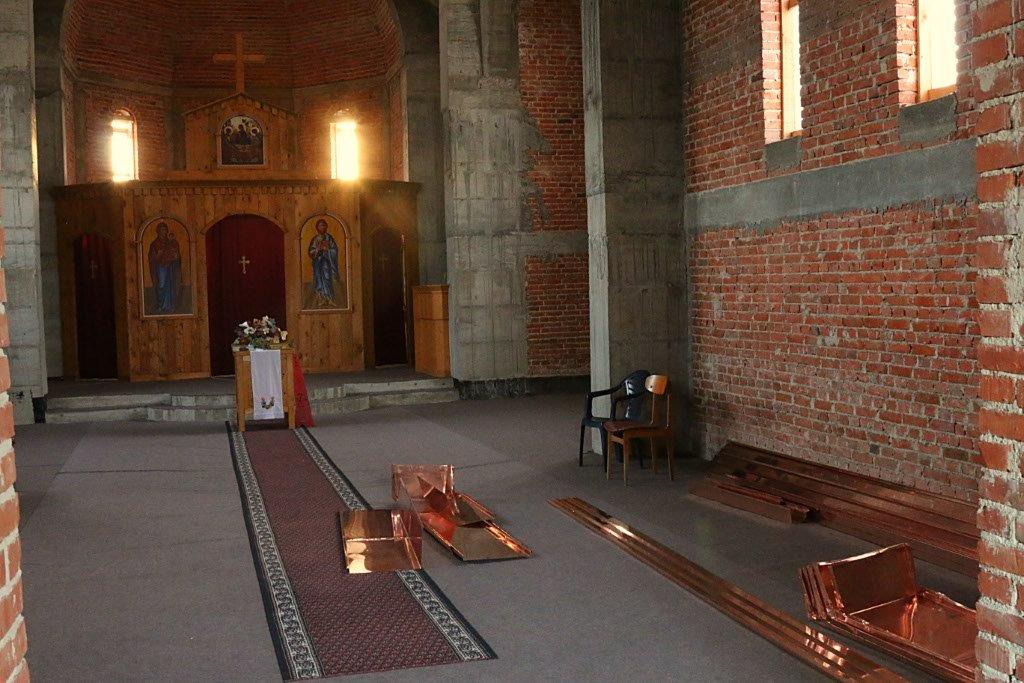
The lovely, simple church interior.
By 8am I am on the road, feeling indomitable. The sun is shining and the tight knot of anxiety curdling in my gut that I’ve become accustomed to each morning has evaporated. Early morning alcoholism, I think – where have you been all my life? I vow only to be completely sober from now on if the situation truly demands it.
It’s a short, pleasant ride to Banja Luka and I arrive by late morning. The city is the de facto capital of Republica Srpska, with large green spaces, wide boulevards and a bloody history etched deep into its masonry. Dominating the central square is the impressive Serbian Orthodox Church of Christ the Saviour (pictured), recently rebuilt after being destroyed by Croatian fascist forces in 1941. Over 2,300 Serbs were subsequently massacred and the rest sent to concentration camps.
During the Bosnian War – the conflict resulting from the country’s declaration of independence from Yugoslavia in 1992 – the tables were turned. Serbs expelled nearly all Bosniaks and Croats, and razed all 16 mosques to the ground. Viewing such conflicts objectively, which repeat and repeat and repeat, can we ever truly claim to be anything more than tribal beasts?
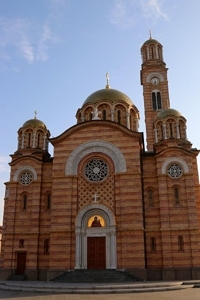
The Cathedral of Christ the Saviour in Banja Luka was completely destroyed by Croatian fascist forces in 1941, with Serbs, Roma and Jews ordered to carry out the demolition. The rebuilt church was completed in 2009.
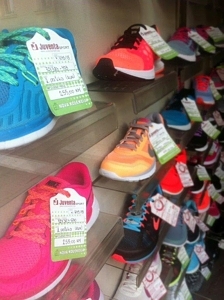
Fiendishly expensive shoes in Banja Luka. Apparently people pay top whack here as a means of showing off their wealth and status.
In a park beside the citadel, I stumble across a Bosnian army recruitment drive. I try out a few of their machine guns and feel a frightening surge of bloodthirsty zeal course through my veins. Humans, in all our hubris and godly aspirations, should never hold the trigger between life and death, I think to myself as I eye up a couple of howling infants in my sight-lines. It’s far too tempting to act on it.
On my way home, I bump into one of the officers, who voices his view of his country. ‘We have lots of problems,’ he tells me. ‘But your democracy is 1,000 years old. Ours is 20 years old. We just need time.’
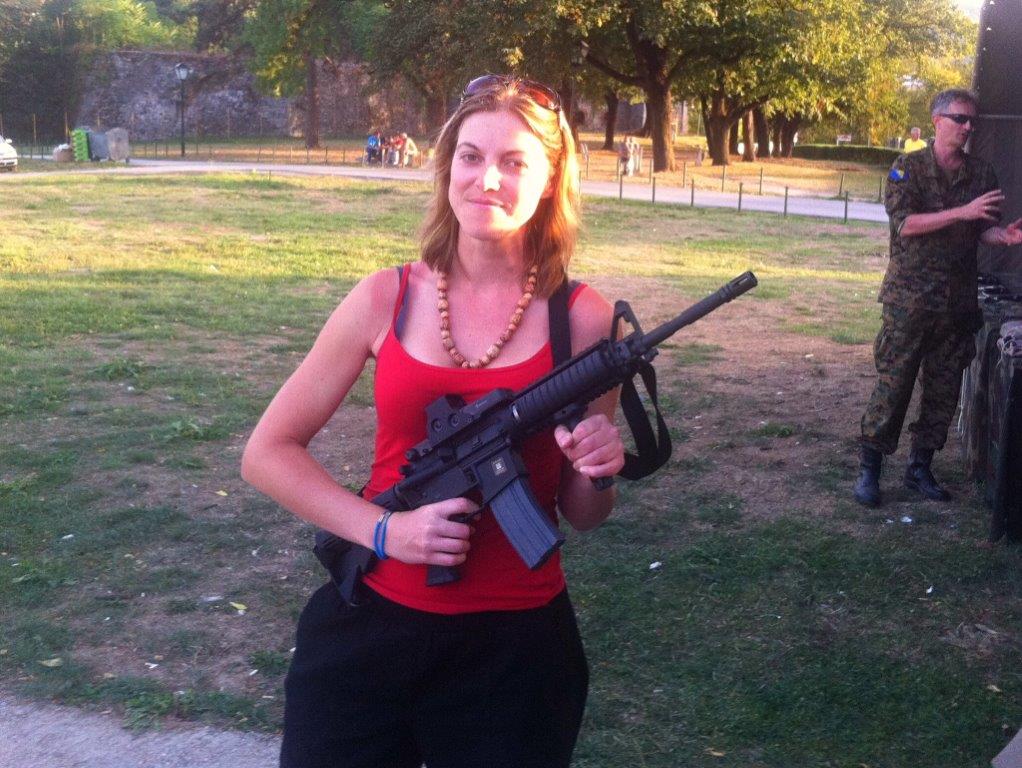
Well, Dervla Murphy (a famous solo female cyclist from the 60s) had a .25 pistol, so why not?
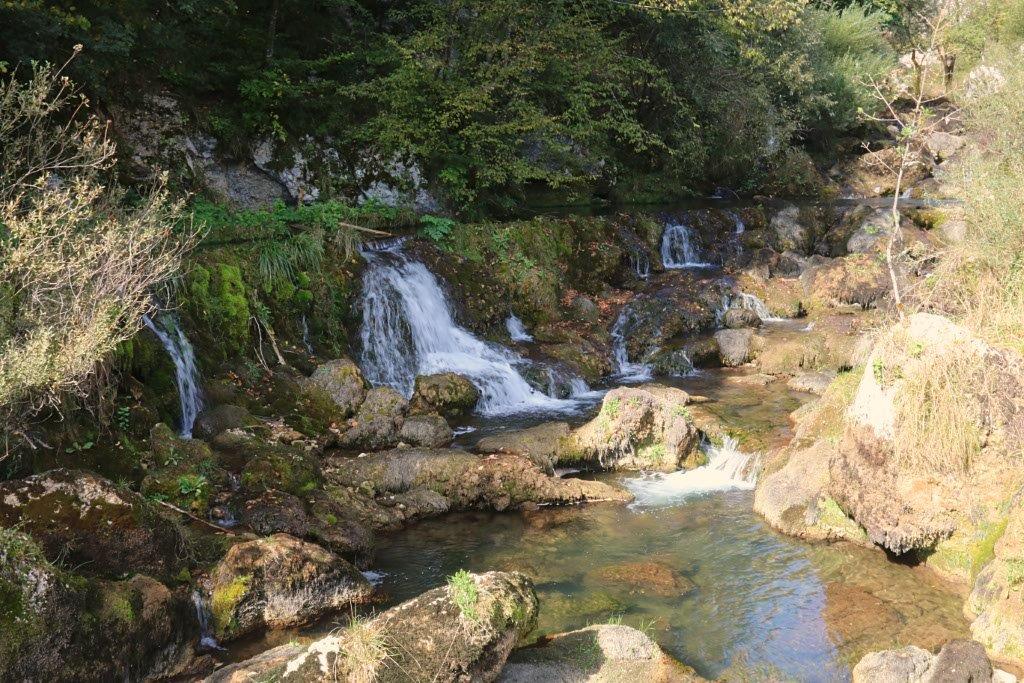
I take a brief detour on my way to Zelenkovac Ecological Movement to see the pretty waterfalls of Krupa River.
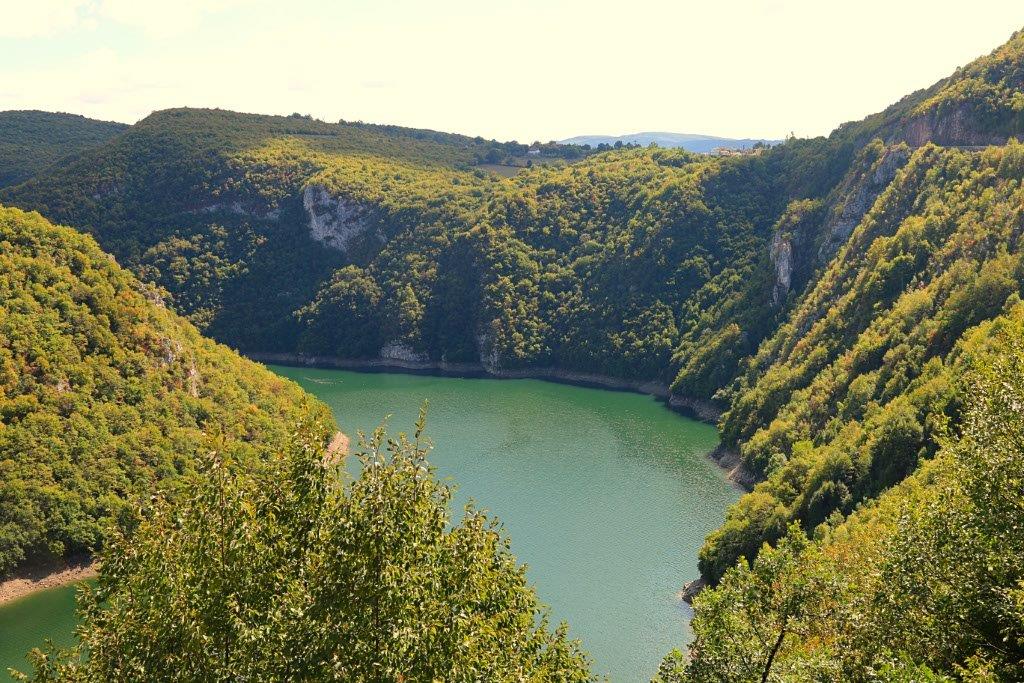
Green carpeted hills and emerald lakes en route to Zelenkovac.
Following a night at the ambitiously titled ‘Smile Hostel’, I set off for Zelenkovac Ecological Movement, an ecolodge-meets-art-gallery-meets-jazz-festival recommended by friends and bummel mentors Max and Emily. The ride is stunningly beautiful from start to finish, first along a river – where I take a brief detour to see the lovely Krupa Falls (pictured) – then up up up into the lush, forested hills where the air is electric and permeates the soul.
Zelenkovac proves every bit as odd and enchanting as I’d hoped. The main log cabin is a Brothers Grimm masterpiece, lovingly built up over the past 30 years by owner Borislav Jankovic. Inside is a cosy bar/gallery containing an eclectic range of Jankovic’s paintings, and surrounding the lodge are a handful of charming wooden huts for guests. As I warm myself by the fire, I am chatted up by S, a Serb who manages the place with a French couple. They all arrived several years ago and never left, he tells me over a rakija. It’s run as an NGO with grants mainly from the US, while the Bosnian government gives just enough for an occasional opportunistic photo op.
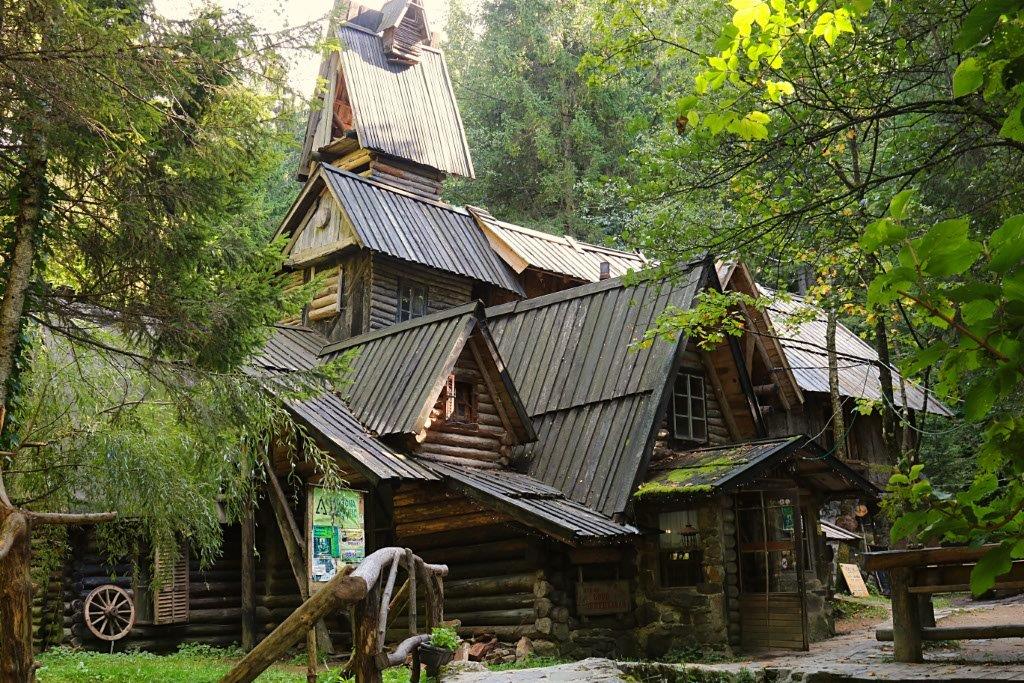
The main lodge of Zelenkovac Ecological Movement, based 1000m above sea-level.
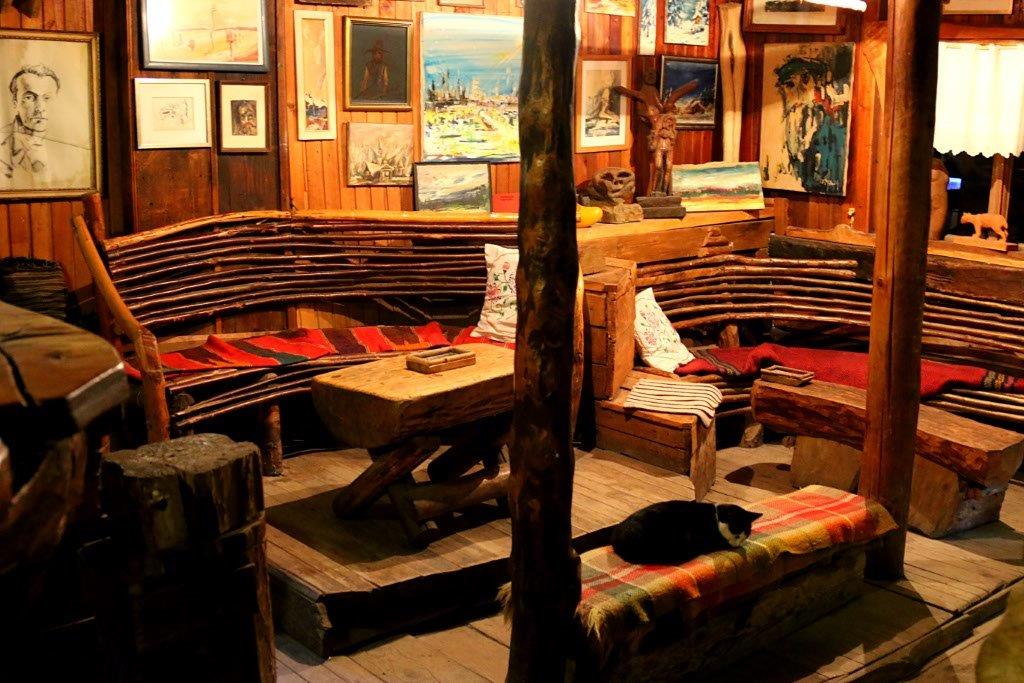
The main lodge: aka art gallery, eco-centre, jazz festival, hippy retreat, bar… anything you’d like it to be. Truly a salve for the soul.
Serbs are very warm-hearted people who feel, says S. They talk to each other in bars and buy rounds for strangers. Here, when a bell is rung, everyone in the room gets a drink. What are relations like between Serbs and Bosniaks these days, I ask? ‘We are brothers,’ he says. ‘We have shared so much.’ But you were at war so recently, I say. ‘Everyone is at war sometimes,’ he replies. ‘Even the English and Scottish.’ Yes, I think. And look how that’s going.
The most important thing to him is family, S says. Next comes his country. But not the politicians, he stresses, or the policemen who have regularly beaten and arrested him since the 1990s. In his view, Serbia killed its last good president in 2003: Zoran Đinđić, the man responsible for extraditing Slobodan Milošević to the International Criminal Tribunal for Yugoslavia in 2001.
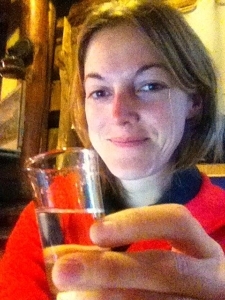
8am breakfast at Zelenkovac. I think my Balkans initiation is complete.
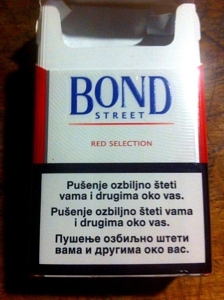
For the sake of sectarian harmony, cigarettes have warnings in all three national languages, Serbian, Croatian and Bosnian, even though the first two are identical to the letter. Brilliant.
We get onto women’s rights. He is not a feminist, he says, grimacing. He’s a ‘modern Serb’. He cooks, but refuses to wash up. ‘You think a woman can cut wood? That’s man’s work. The woman is better at other things [mimics cleaning and decorating].’
I obviously disagree, but I do partially understand the logic. In a world where manual labour dominates, it makes some sense for the man to toil outdoors while the woman pulls her weight at home. Though how hard can chopping wood be? I’m fairly sure I’d choose it over a life of domestic drudgery, given the choice. And there’s the rub, of course. Women are rarely given the choice.
Like everyone else in the Balkans, S is a smoker. As we talk, he puffs his way through an enormous box of dirt-cheap bootleg cigarettes. The warning on the packet seems to encapsulate the precarious, petty fault lines of the country perfectly: to maintain ethnic neutrality, it is written in all three national languages, Serbian, Croatian and Bosnian — despite the fact the first two are identical to the letter (see pic).
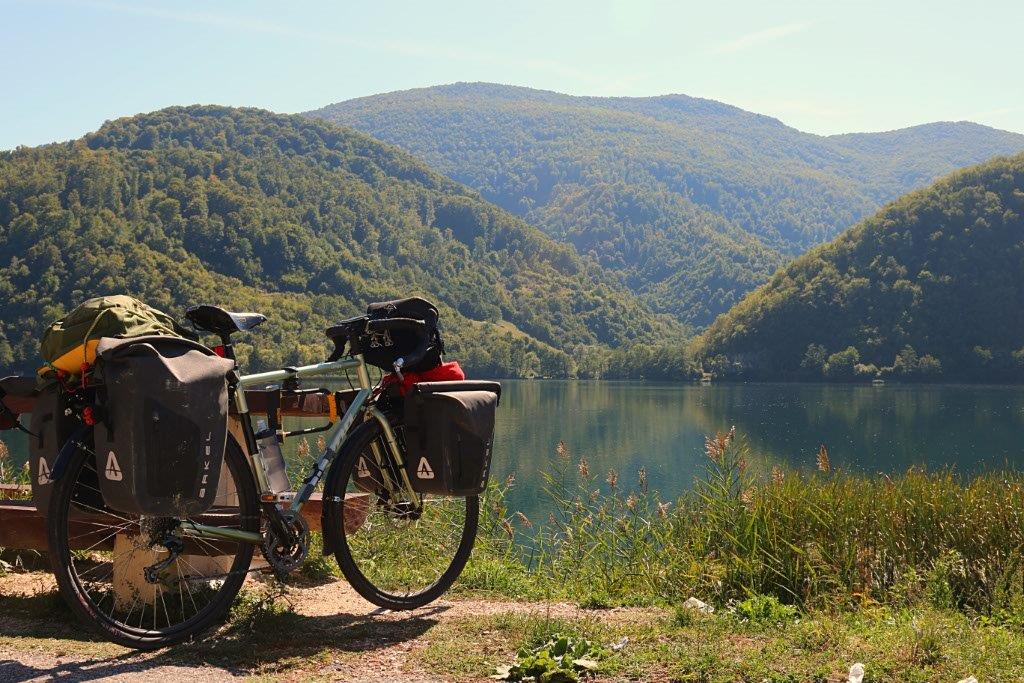
Lakeside picnic stop en route to Jajce.
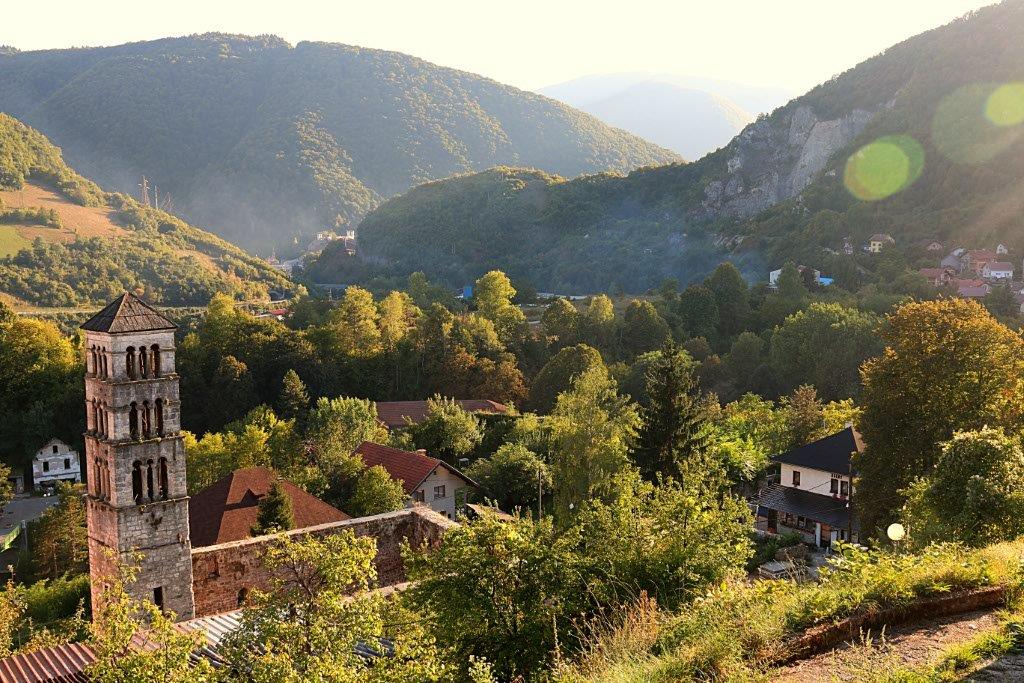
St Mary’s Church, Jajce, believed to have been built in the C12th. In 1582, it was converted into a mosque and named after the Ottoman sultan Suleiman the Magnificent. It later burnt down several times, leaving behind nothing but walls.
In the morning, while the men are out banging their chests and wafting their testosterone around the woodpiles, I leave for Jajce. It’s another dazzling, delicious ride and I feel thoroughly revitalised by the time I arrive. It’s just as well, as I discover that the town has an intimidating 24 ‘historic monuments’ on the tourist trail. This seems a little greedy to me. Why not focus your attentions on one or two good meaty monuments, leaving scope for a restorative snifter at the end?
Usefully, however, the merit of several attractions has already been quantified for me by experts, saving me the bother. The 22m Pliva Waterfall (pictured) is ‘one of the 12 most beautiful in the world’, I am informed, whereas the medieval fortress (also pictured) displays some of the ‘most impressive views in Bosnia’. The catacombs and underground church are rather good too, but by this time I’m exhausted and decide to leave the final 19 sights for another occasion.
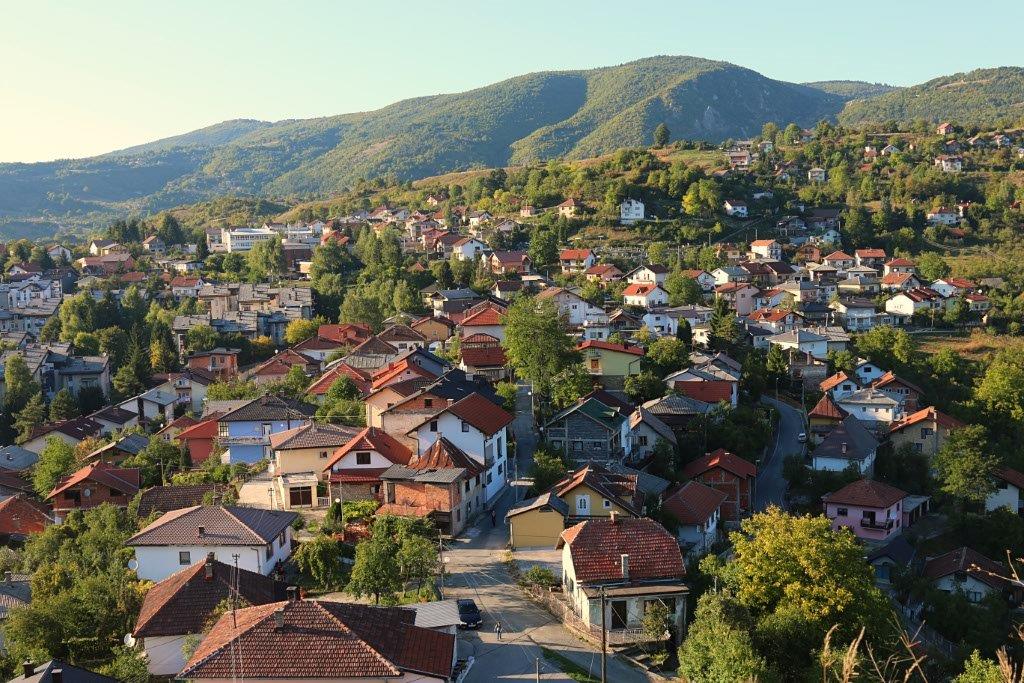
View from the Jajce Fortress, built in the C14th by the city founder.
After a fitful night in the freezing cold campsite, listening to stray dogs howling and mauling each other to death outside my tent, I hit the road for a hefty 110km marathon to Visoko. The ride is spectacular, but involves a tough climb up a truly gargantuan hill and takes me the best part of seven hours. I am enjoying a brief rest face down on the roadside to celebrate my arrival when, as if by magic, a couple in a van pull up and ask whether I’d like a ride to Sarajevo. Why yes I would, I say! And we churn up the final 20km in minutes.
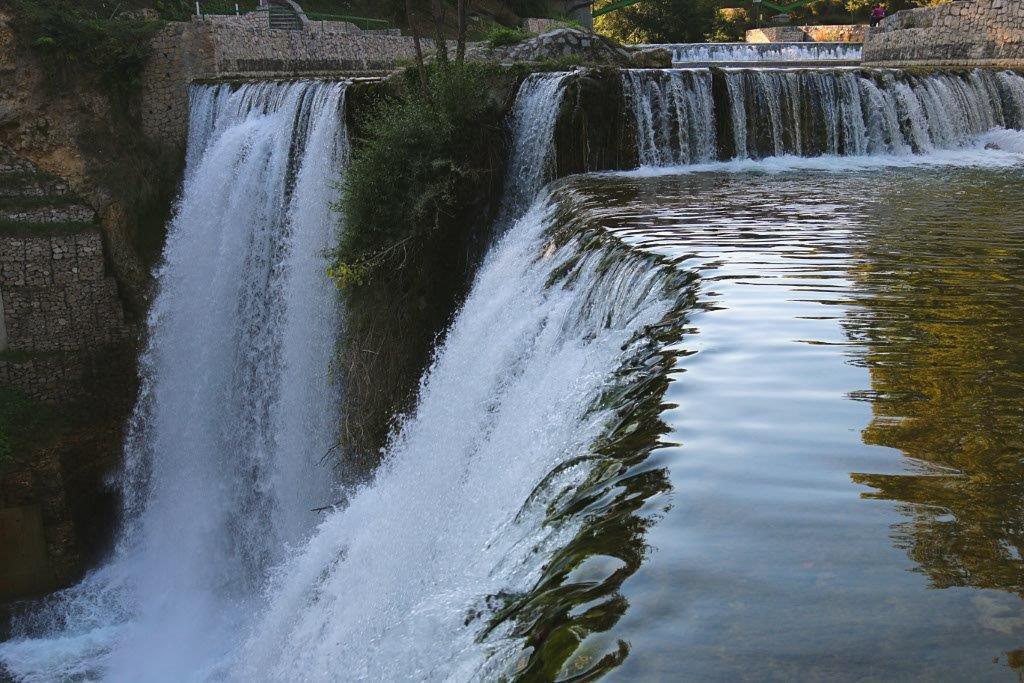
The 20m-high Pliva Waterfall, located right in the centre of Jajce.
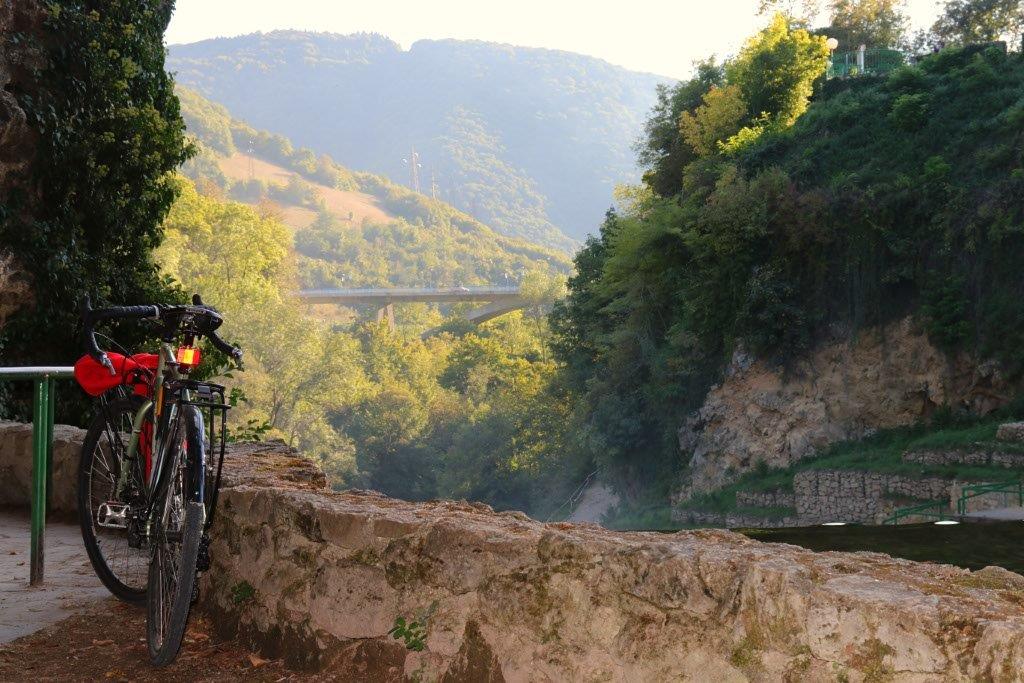
Maud at rest at the top of Pliva Waterfall.
In Sarajevo, I stay with a German woman, F, who is investigating how women in the region reconcile being Muslim with being European for her PhD. ‘The interesting thing,’ she tells me, ‘is that there really isn’t any tension at all.’ A brief tour around the city, where the vast majority are Muslim, seems living proof of this hypothesis. Here, hijabs and high heels live in easy harmony, with most women dressed in modern Western attire.
Severe problems lurk beneath the surface, however. Homeless people beg on every street corner, symptomatic of the deep dysfunction at the heart of government. Corruption is rife, unemployment disastrous (27%, according to the IMF) and the economy on the verge of collapse. Everything comes at a price. ‘Bribery is completely normalised,’ says Z, a local academic. ‘People pay for university degrees and surgical procedures. To get off parking fines. To have babies.’ She adds: ‘The big malls you see here are not a sign of prosperity, they’re a sign of political deals. Nobody wants them.’
What about the looming Avaz Twist Tower, a glistening 176m phallus built in 2008 to house Dveni Avaz, Bosnia’s largest newspaper? Do people want that? Some, depending on which side of the political and ethnic divide they’re on, says B, a former editor-turned-translator. Avaz is owned by Fahrudin Radončić, who leads the second largest party in the Federation. According to an indictment by prosecutors in Kosovo, Radončić and drug trafficker Naser Kelmendi were responsible for commissioning the murder of mafia don Ramiz ‘Ćelo’ Delalić to prevent him undermining their business interests. Radončić has stressed that he himself was not indicted, but only named in the indictment as a member of a criminal organisation, which he firmly denies.
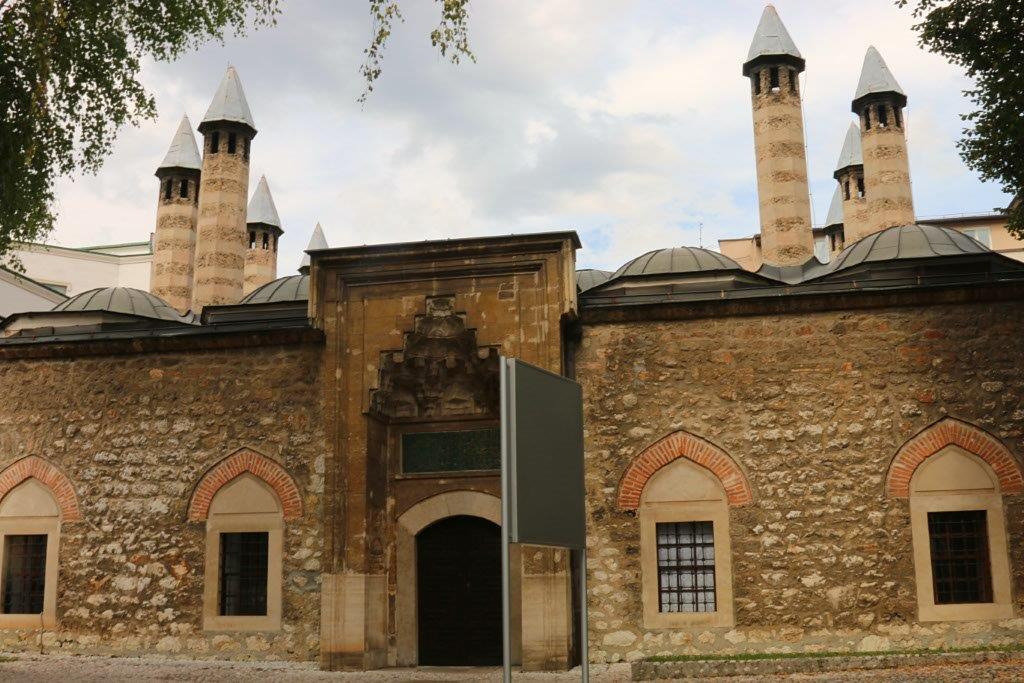
The Gazi Husrev Beg Mosque, described in the literature as ‘the most monumental mosque of the Ottoman period’. It was built by Beg in 1951, and designed by the chief architect of the Ottoman period, Ajam Asir Ali.
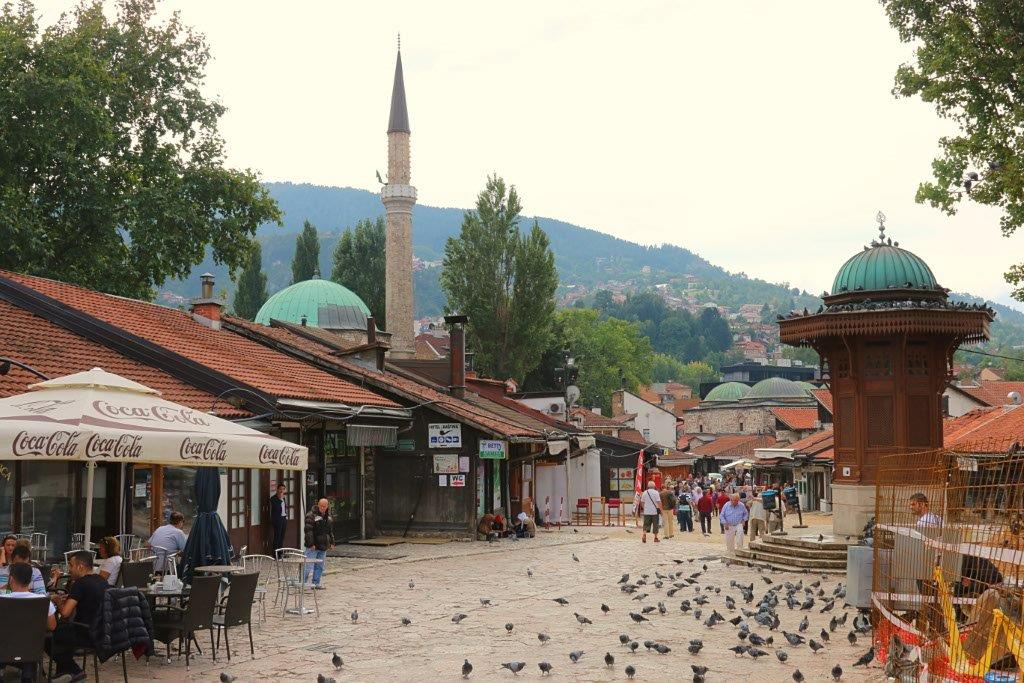
Sarajevo old town.
‘Politics and the media are both drawn along ethnic lines, and almost all of it is dirty,’ says B. Boundaries were far more fluid before the war, he believes. ‘People were more tolerant then. Now the country has no identity, so people search for it in their ethnicity and religion.’
The Bosnian political system was created by the 1995 Dayton Agreement that brought an end to the war. It’s a viciously complex arrangement, involving multiple layers of bureaucracy and autonomy, which nobody I meet seems entirely to understand. What people do agree on, however, is that it’s in desperate need of reform — starting with the abolition of the three separate presidencies for each ethnic group, which only serves to institutionalise sectarian divides.
According to E, a British investigative journalist, the threat of Bosnian Serb secession is very real. ‘And that would be a disaster. It would imply that the land you win through war crimes can be rightfully yours.’
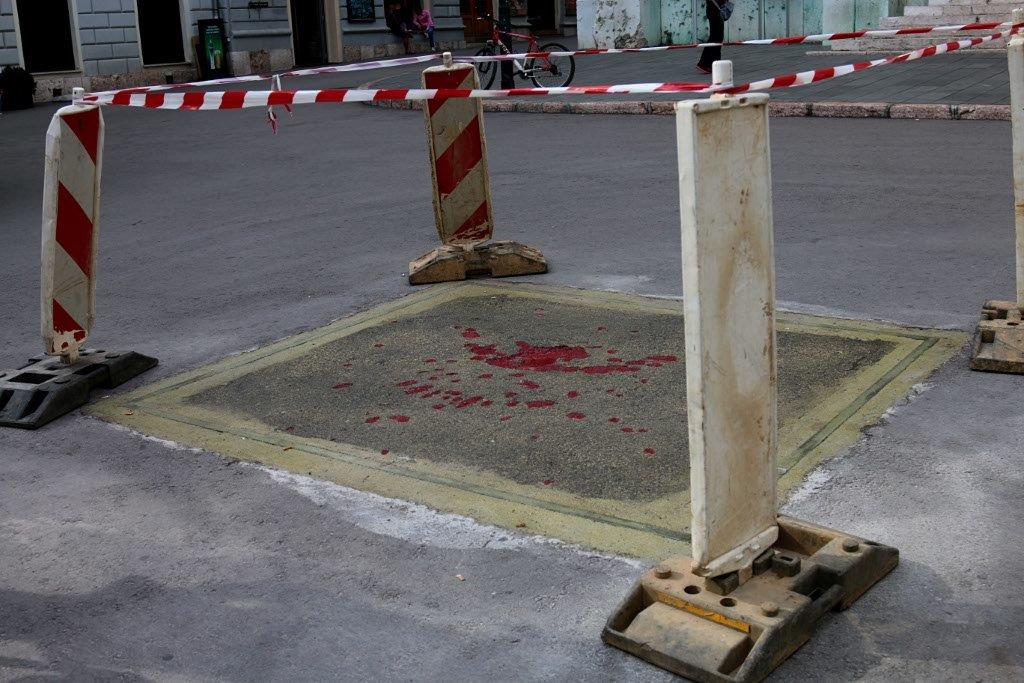
One of the many ‘Sarajevo roses’ throughout the city: mortar explosion marks filled with red resin to show where one or more people died. The explosions occurred during the Siege of Sarajevo by the Army of Republika Srpska, from 5 April 1992 to 29 February 1996. It was the longest siege of a capital city in the history of modern warfare.
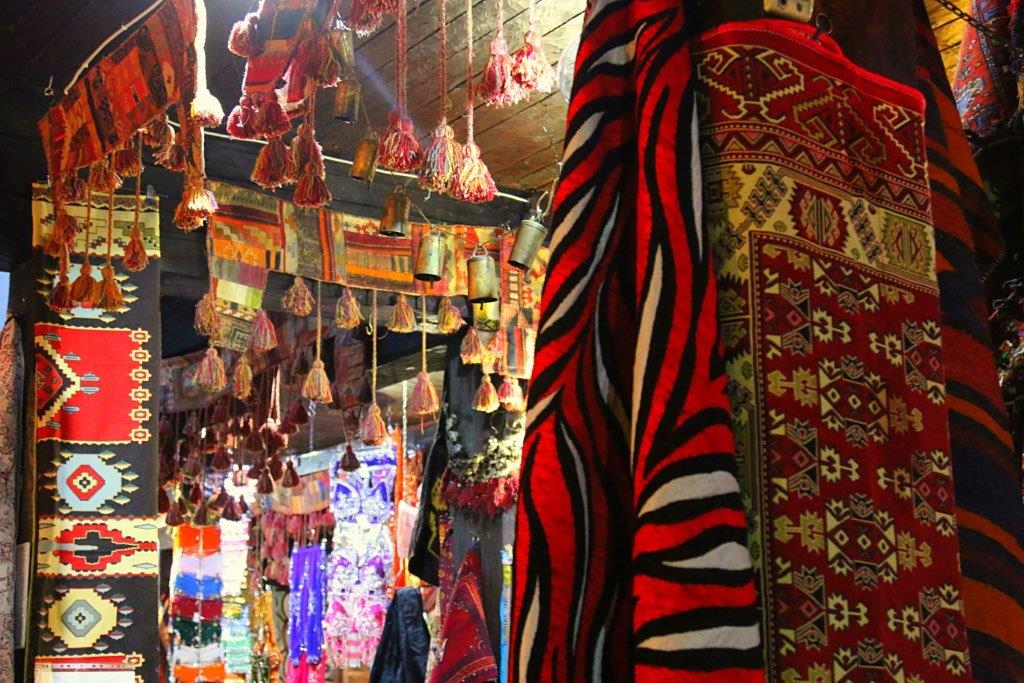
Bosnian textiles in Sarajevo old town.
I leave the next day for Podgorica, Montenegro. I have agreed to cut short my Bosnian trip to meet my boyfriend there for a holiday, so cycle 11km out of town to catch the bus. Only minibuses are making the winding, treacherous journey, it transpires, but after some persuasion the driver agrees to squeeze a dismembered Maud into the tiny boot. To celebrate, I spend my final Bosnian marks on a bar of Milka and packet of chocolate hobnobs.
Ten minutes later, the driver comes to ask for another four marks for the bike. Ah, I say apologetically. I’m afraid I’ve eaten it. I try to offer him my remaining three hobnobs, but confectionery clearly isn’t accepted as official currency on Bosnian buses. Just as I’m debating the horror of having to disembark, an old woman reaches into her purse and pays on my behalf. It’s not a small amount for her, I know, and I feel deeply touched. I give her a hug and thank her profusely. She smiles, touches her hand to her heart and says ‘Muslim’.
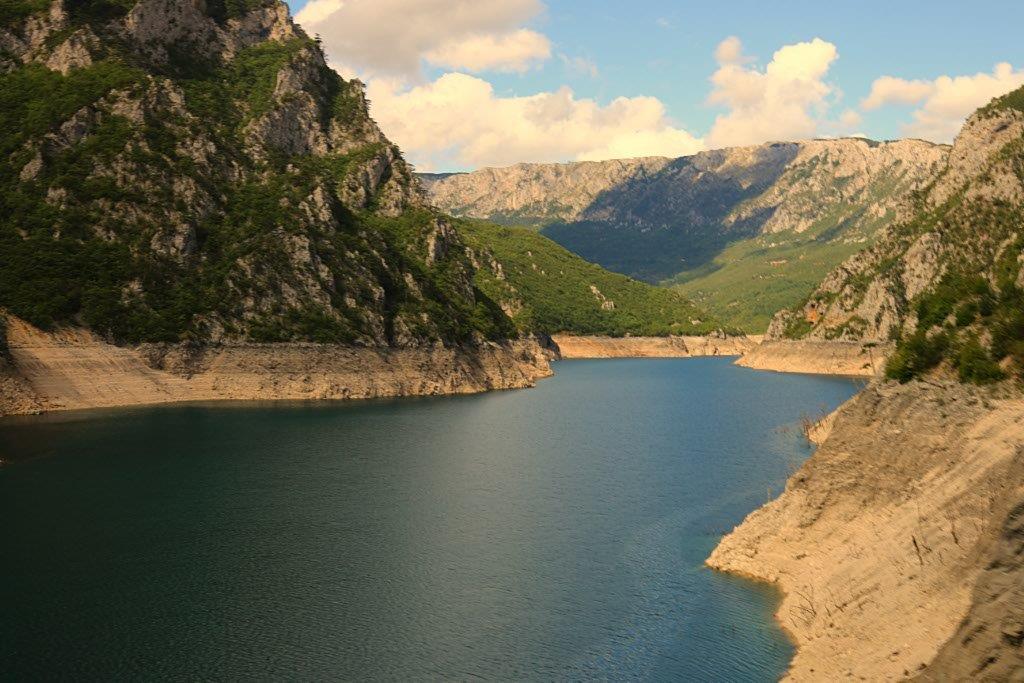
Craggy hills and deep turquoise lakes en route to Montenegro through the Tara River Canyon.
The next few hours are spent on an exhilarating romp through the magnificent Tara River Canyon, the deepest canyon in Europe. Jam-packed inside the sweaty bus, we recklessly rattle and swoop beside stomach-churning drops with no security barrier and often no proper road. To my surprise, however, I reach Podgorica intact and on time, and manage to cycle the final 10km to the airport before my boyfriend arrives. Success, I think exultantly! And due in no small part to my kind Muslim friend. So thank you again, lovely lady, wherever you may be. I hope life brings you all that you deserve.


Jessica Boulton
Posted at 23:03h, 04 FebruaryLoved this. Thanks for sending these out. Cried about the bus fare. Looking forward to next instalment
reol8
Posted at 12:29h, 05 FebruaryThanks Jessica, v kind of you to get in touch. I actually shed a wee tear too at the time. What a gal. All best, and please stay in touch – R
Melissa Piscetek
Posted at 09:38h, 05 FebruaryI SO enjoyed reading this blog, Bex! I love that it’s informative, yet funny (gotta have a good sense of humour on a cycle tour, eh?) It is such a fascinating part of the world and I like the insights that you provide. I’m looking forward to the next installment!!
reol8
Posted at 12:31h, 05 FebruaryThanks Mel! So chuffed you’re reading. And you’re right: humour a must. Plus alcohol. That’s my recipe for bummel success.
Paul Dean
Posted at 10:14h, 05 FebruaryI don’t know if this is deliberate/a mistake/unimportant but this post doesn’t appear on the BLOG page. A good read though, and takes me back to my tour through the Balkans of last year. Keep it up!
Paul Dean
Posted at 10:17h, 05 FebruaryAh, now that’s interesting – as soon as I submitted my comment the post suddenly appeared on the BLOG page…
reol8
Posted at 12:25h, 05 FebruaryHI Paul – many thanks for reading and getting in touch. Great to have your support. Not sure what happened with the blog post – it should have been there the whole time, though occasionally people do seem to hit glitches with the blogs and pics. Not sure why, but glad it re-emerged from the ether. All best, R
David Hines
Posted at 02:51h, 06 FebruaryInformative, entertaining, and great pictures. I look forward to your future posts! Thanks.
Bex
Posted at 13:33h, 19 FebruaryThanks so much for reading, David – really appreciate the support! Best, R
Max Goldzweig
Posted at 17:18h, 06 FebruaryGreat bummeling, had me chuckling away in my Colombian hostal bed. I love how your meeting so many interesting people and getting under the skin of these places, but even more so I love how your managing to combine it with low level but constant drinking. Here in Colombia I’m taking a different approach: A weekly unrestrained bender, followed by six days of detox and self loathing on the bike. Working out well so far, but may switch to a more sustainable model once we reach wine country.
reol8
Posted at 19:05h, 07 FebruaryBig thanks, MG. Though I have to admit I wish I’d gone a bit harder, looking back. I’d hoped to store enough latent plonk in my pores in Beirut to see me through Jordan – where one glass of wine costs about three months’ budget – but I sobered up around the Dead Sea and nothing’s quite been the same since. A bummel isn’t really a bummel without a worrying trend of mild alcoholism, I think. Where are you now, btw? Loved the volcano pics, and glad those civilised sausages weren’t your last. Bex x
Katalin Lowe
Posted at 21:37h, 10 FebruaryAnother great piece, though perhaps a bit less funny than the ones before. I expect the poverty and the tensions got to you somewhat. But most enjoyable and informative nevertheless. Keep up the good works darling, and hope you will be able to catch up with yourself soon – really looking forward to every posting! M xxx
James Briggs
Posted at 10:03h, 19 FebruaryI’m sat (chained) at a desk, but feel thoroughly inspired by your most recent travel tales. They brought a few titters, a little nose snort and some smiles. Good luck with your journey and look forward to reading the next instalment!
Bex
Posted at 13:54h, 19 FebruaryThanks JB! Chuffed you’re reading, and no bigger compliment than a spontaneous nose snort. Hope all well with you. Are you still motorbiking? x
Gabrielle
Posted at 00:12h, 06 MayIkke le av tunellen (vet at det skrives tunnel) vÃ¥r 😉 Den ble dessverre fjernet i forbindelse med en veiforbedring etter et ras. Det ble visst for kosrkatt/risibabelt Ã¥ beholde den, selv om den var verneverdig. Har prøvd Ã¥ finne bilder av den pÃ¥ google, men finner det ikke selv om jeg har sett det tidligere. Tror ikke tunellen ved Farriseidet er spesielt lang heller, men lang i forhold til “vÃ¥r”
EDV-Dienstleister
Posted at 13:11h, 04 NovemberGreat job. Thanks for sharing all of this.